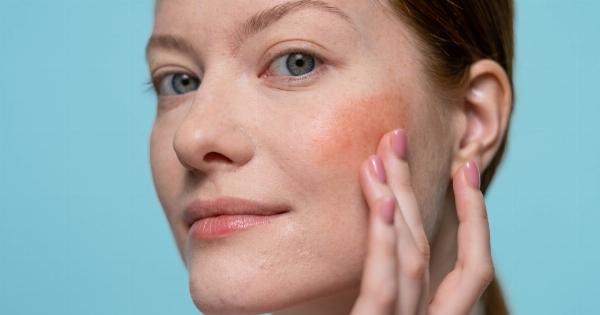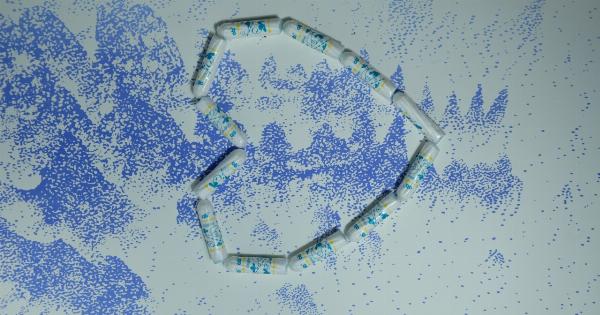Sleep is an essential component of our daily routine and plays a crucial role in maintaining optimal health.
Adequate sleep is imperative for various physiological processes, including the proper functioning of the immune system, metabolism, and cognitive function. However, due to numerous factors such as work demands, stress, and lifestyle choices, many individuals don’t get the recommended seven to nine hours of sleep per night.
Inadequate sleep has been linked to various health issues, including an increased risk of chronic conditions like obesity, diabetes, and cardiovascular diseases. In addition, insufficient sleep can also lead to deficiencies in important vitamins and minerals. In this article, we will explore the vitamins that are commonly lost when individuals consistently sleep less than seven hours every night.
Vitamin D
Vitamin D is a critical nutrient that plays a crucial role in maintaining bone health and supporting immune function. It is commonly referred to as the “sunshine vitamin” as our body synthesizes it when exposed to sunlight.
However, inadequate sleep can lead to reduced sun exposure, resulting in decreased Vitamin D production. Vitamin D deficiency has been associated with various health issues, including weakened bones, increased susceptibility to infections, and compromised immune system function, among others.
Vitamin B12
Vitamin B12 is essential for the production of red blood cells and the proper functioning of the nervous system. It is primarily found in animal-based foods such as meat, fish, dairy products, and eggs.
Lack of sleep can disrupt the absorption of Vitamin B12, leading to a deficiency. Prolonged deficiency of Vitamin B12 can result in anemia, fatigue, memory problems, and nerve damage.
Vitamin C
Vitamin C is a powerful antioxidant known for its immune-boosting properties. It also plays a vital role in collagen synthesis, wound healing, and iron absorption.
Lack of sleep can weaken the immune system and increase oxidative stress in the body, resulting in a higher demand for Vitamin C. Inadequate sleep, coupled with a lack of dietary intake of Vitamin C-rich foods such as citrus fruits, berries, and leafy greens, can lead to a deficiency and impaired immune function.
Vitamin A
Vitamin A is crucial for maintaining healthy vision, promoting cell growth, and supporting the immune system.
It is primarily obtained from animal sources in the form of retinol and from plant sources as beta-carotene, which is converted to Vitamin A in the body. Inadequate sleep can affect the body’s ability to convert beta-carotene into Vitamin A efficiently, leading to a deficiency. Vitamin A deficiency can cause night blindness, dry eyes, and weakened immunity.
Vitamin E
Vitamin E is a potent antioxidant that protects cells from damage caused by free radicals. It also plays a crucial role in immune function and maintaining healthy skin and eyes.
Sleep deprivation can increase oxidative stress in the body, depleting antioxidant reserves. Vitamin E deficiency can lead to compromised immune function and increased risk of infections.
Vitamin K
Vitamin K is vital for blood clotting, bone health, and maintaining overall cardiovascular health. Sleep deprivation can disrupt normal blood clotting mechanisms, potentially affecting the body’s ability to utilize Vitamin K efficiently.
Prolonged sleep deprivation can lead to Vitamin K deficiency, which may increase the risk of excessive bleeding and cardiovascular issues.
Vitamin B6
Vitamin B6, also known as pyridoxine, is involved in various physiological processes, including brain development, immune function, and the synthesis of neurotransmitters.
Inadequate sleep can disrupt the body’s ability to convert pyridoxine into its active form, leading to reduced levels of Vitamin B6. This deficiency can result in symptoms such as mood swings, depression, difficulty concentrating, and compromised immune function.
Vitamin B5
Vitamin B5, also known as pantothenic acid, is essential for energy production, hormone synthesis, and the synthesis of cholesterol and fatty acids.
Inadequate sleep can disrupt these metabolic processes, potentially leading to decreased availability and utilization of Vitamin B5. Prolonged deficiency of Vitamin B5 can result in fatigue, muscle cramps, and impaired adrenal function.
Vitamin B3
Vitamin B3, also known as niacin, is involved in energy metabolism, DNA repair, and maintenance of healthy skin. Lack of sleep can impact the body’s ability to utilize niacin efficiently, leading to a deficiency.
Vitamin B3 deficiency can cause symptoms such as fatigue, gastrointestinal issues, skin rashes, and an increased risk of cardiovascular diseases.
Vitamin B1
Vitamin B1, also known as thiamine, is essential for converting carbohydrates into energy and supporting proper functioning of the nervous system. Sleep deprivation can impair the body’s ability to absorb and utilize thiamine efficiently.
Vitamin B1 deficiency can result in symptoms such as fatigue, muscle weakness, poor memory, nerve damage, and in severe cases, a condition known as beriberi.
Conclusion
Adequate sleep is vital for overall health and well-being. Consistently sleeping less than seven hours every night can lead to numerous health issues, including deficiencies in vital vitamins.
Vitamin deficiencies can have detrimental effects on energy levels, immune function, cognitive function, and overall health. It is crucial to prioritize sleep and ensure getting the recommended amount of sleep each night to preserve optimal health and prevent nutrient deficiencies.






























